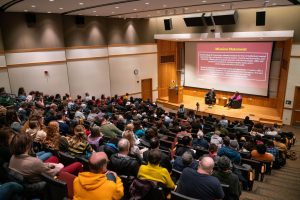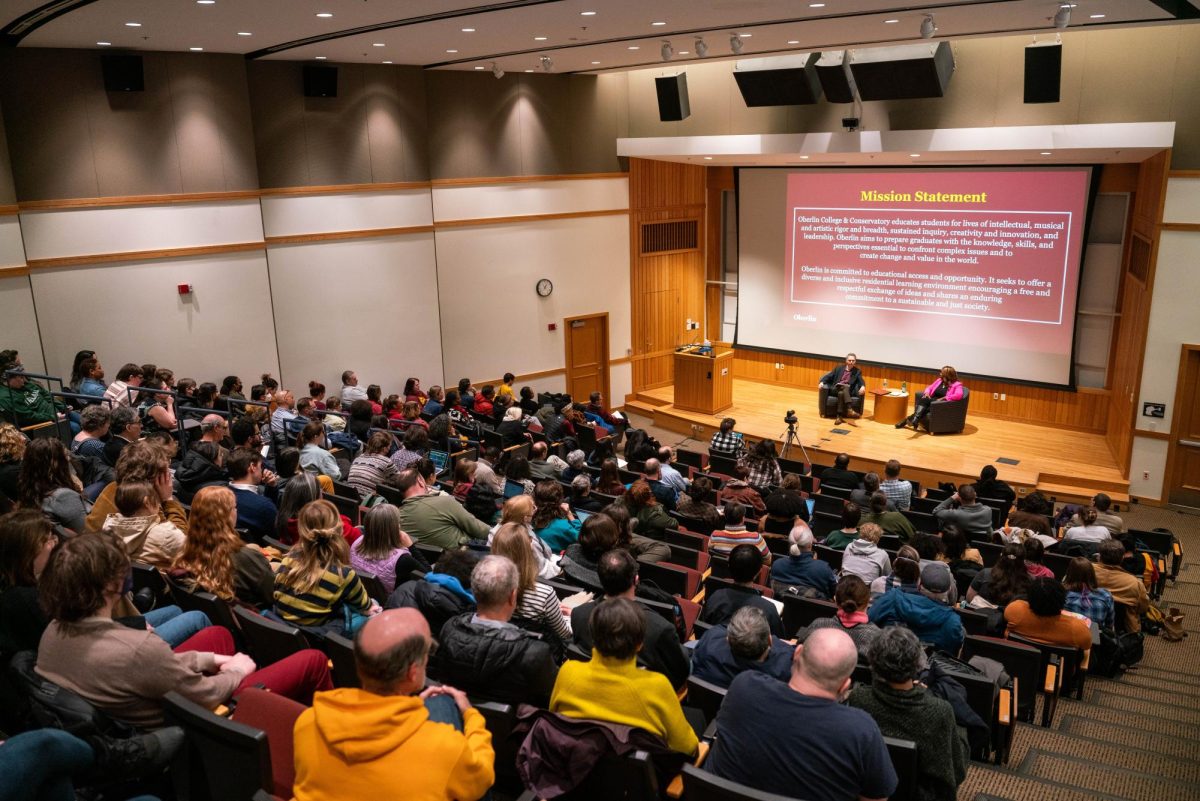Alumnus Challenges Board to Acknowledge Black Birthright
April 1, 2016
Editor’s Note: This letter references the March 5 email to students and faculty from Board of Trustees Chair Clyde McGregor, OC ’74.
To the Editors:
Resolved: The interests and policies of the State of Israel compromise the democratic birthright of Black Americans.
The dissembling response of the Board of Trustees through its chair does nothing to identify and to educate the Oberlin community about one of the fundamental issues dividing our nation and inflaming college and university campuses. The issue is the relations between our country and the State of Israel. The Board is not ignorant of this issue, but it has gone to great lengths to avoid this source of campus, national and international discord. Failing to even mention the State of Israel in its communiqué is avoidance at best, deception at worst. Avoidance of critical civic issues is not the Oberlin way. Neither is avoidance of the way in which our country treats its Black citizens.
The economic and civic well-being of Black Americans for over two generations has been bound up with the U.S.-Israel relationship. No group of Americans is as dependent on the realization of the goals of our Constitution as declared in its Preamble as Black Americans, and no nation is as dedicated to bending the goals of our Constitution to its own ends as is the State of Israel.
If the Board seeks to engage the fundamental issue confronting the relationship between the academy and free speech regarding the State of Israel, including our use of young people as literal, as well as figurative, cannon fodder in the interests of perpetual war, it will include among its directions to the College administration the organization of a nationally publicized debate embracing the terms of the introductory resolve.
I am certain that the College can locate many recognized leaders of the United States and Israel, including their military officials, academics, leaders and spokespersons of prominent civic organizations, such as the Council on Foreign Relations and the Brookings Institution, as well as pundits to participate on the side of the negative. There may be more difficulty, though no futility, in finding a proponent of the affirmative.
In order to provide a template for reference to the tenets of democratic birthright, I suggest the re-publication of the archived “Elements of Democracy” by John David Lewis, 1939.
– Delbert Spurlock
OC ’63






















